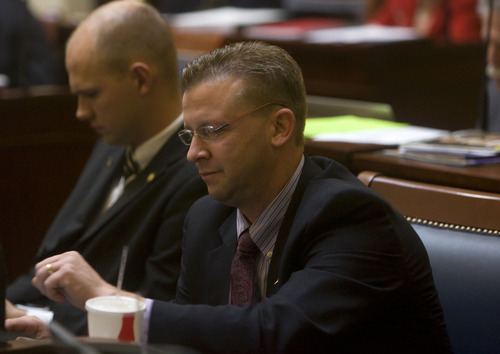This is an archived article that was published on sltrib.com in 2012, and information in the article may be outdated. It is provided only for personal research purposes and may not be reprinted.
Any health care mandate passed by the Legislature would have to cover public and higher education employees and make the state pick up the tab, under a bill that passed the Senate on Monday.
Critics say that could increase the cost to the state of health care mandates many times over, effectively making it impossible to get new coverage mandated in the state — including a proposal to require health plans to provide autism treatment.
Sen. Todd Weiler, R-Woods Cross, said there are 14 proposed mandates this session.
"I have a real concern what impact those will have on small business and some businesses will be forced to drop all insurance rather than fund the increased premiums caused by these mandates," he said.
The bill passed the Senate 22-5 and moves on to the House for consideration.
Several senators argued that each health-care mandate should be considered independently, without the state volunteering to pick up all the costs.
"I feel all of these [mandates] need to be addressed on a one-by-one basis and not a catch-all cover up," said Sen. Allen Christensen, R-North Ogden.
Sen. Ben McAdams, D-Salt Lake City, argued during earlier debate that covering the additional costs for public and higher education employees would increase the price tag for the autism coverage eight times over.
But Sen. John Valentine, R-Orem, said that if the mandate is worthy, the state shouldn't just pass the buck to colleges and school districts.
"We are just kidding ourselves if we think we're going to impose an insurance mandate and not have the ability to pay for it," Valentine said. "Frankly … that's what our federal government does. Our federal government believes they can send down mandates and not pay for it. … In this case, we are putting our money where our mouth is."



